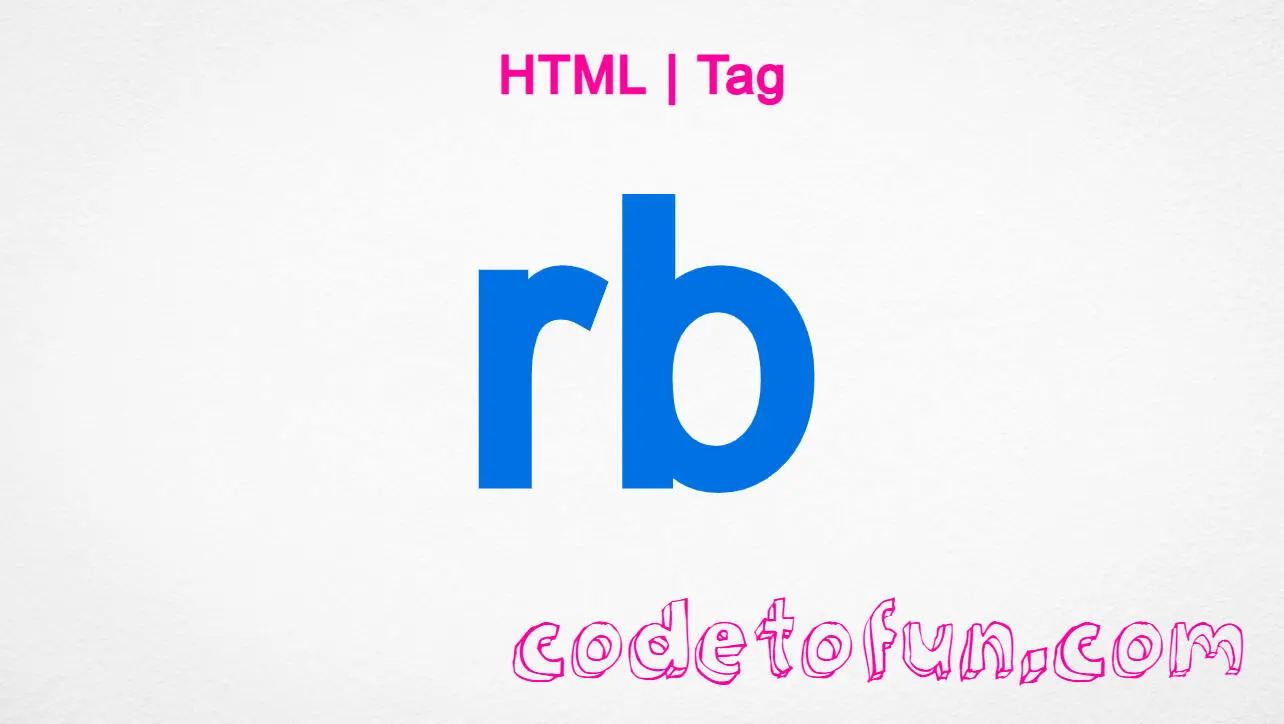
HTML Basic
HTML Reference
- HTML Tags
- <!--...-->
- <!DOCTYPE>
- <a>
- <abbr>
- <address>
- <area>
- <article>
- <aside>
- <audio>
- <b>
- <base>
- <bdi>
- <bdo>
- <blockquote>
- <body>
- <br>
- <button>
- <canvas>
- <caption>
- <cite>
- <code>
- <col>
- <colgroup>
- <data>
- <datalist>
- <dd>
- <del>
- <details>
- <dfn>
- <dialog>
- <div>
- <dl>
- <dt>
- <em>
- <embed>
- <fieldset>
- <figcaption>
- <figure>
- <footer>
- <form>
- <h1> to <h6>
- <head>
- <header>
- <hgroup>
- <hr>
- <html>
- <i>
- <iframe>
- <img>
- <input>
- <ins>
- <kbd>
- <label>
- <legend>
- <li>
- <link>
- <main>
- <map>
- <mark>
- <menu>
- <meta>
- <meter>
- <nav>
- <noscript>
- <object>
- <ol>
- <optgroup>
- <option>
- <output>
- <p>
- <param>
- <picture>
- <pre>
- <progress>
- <q>
- <rp>
- <rt>
- <ruby>
- <s>
- <samp>
- <script>
- <search>
- <section>
- <select>
- <small>
- <source>
- <span>
- <strong>
- <style>
- <sub>
- <summary>
- <sup>
- <svg>
- <table>
- <tbody>
- <td>
- <template>
- <textarea>
- <tfoot>
- <th>
- <thead>
- <time>
- <title>
- <tr>
- <track>
- <u>
- <ul>
- <var>
- <video>
- <wbr>
- HTML Deprecated Tags
- HTML Events
- HTML Global Attributes
- HTML Status Code
- HTML Language Code
- HTML Country Code
- HTML Charset
- MIME Types
HTML noembed tag

Photo Credit to CodeToFun
🙋 Introduction
In the landscape of HTML, the <noembed> tag once played a significant role in providing fallback content for non-embeddable media elements.
This guide will delve into the intricacies of the <noembed> tag and its historical context.
🤔 What is <noembed> Tag?
The <noembed> tag was designed to contain alternative content for browsers that did not support embedded media elements like <embed> or <object>. It allowed developers to provide descriptive text or images as substitutes for non-renderable media content.
🚫 Deprecated Status:
It's important to note that the <noembed> tag has been deprecated in HTML5. Modern web standards encourage the use of more robust and standardized approaches to handling multimedia content, such as the <iframe> tag for embedding external content or the <video> and <audio> tags for native media playback.
💡 Syntax
To use the <noembed> tag, simply wrap the alternative content within the opening <noembed> and closing </noembed> tags.
<noembed>
Your alternative content here
</noembed>🧰 Attributes
The <noembed> tag does not support any attributes.
📚 Common Use Cases
Fallback Content for Non-Embeddable Media:
In scenarios where certain browsers or platforms do not support embedded media elements, the
<noembed>tag was used to provide alternative descriptions or images to convey the intended content to users.index.htmlCopied<noembed> <p>This browser does not support embedded media. Please refer to the link below for the video.</p> </noembed>
🖥️ Browser Support
Since the <noembed> tag is deprecated in HTML5, its support across modern browsers is limited and inconsistent. It's recommended to avoid using this tag in favor of more contemporary solutions for handling multimedia content.
- Google Chrome: Not supported.
- Mozilla Firefox: Not supported.
- Microsoft Edge: Not supported.
- Safari: Not supported.
- Opera: Not supported.
- Internet Explorer: Not supported.
Ensure you test your code in various browsers to guarantee a seamless experience for your audience.
🏆 Best Practices
- Migration: If you currently use
<noembed>tags, consider migrating to modern standards-compliant approaches for embedding media content. - Progressive Enhancement: Implement alternative strategies like feature detection and progressive enhancement to ensure a seamless user experience across different browsers and devices.
🔄 Alternatives
Given the deprecation of the <noembed> tag, consider using alternative methods for embedding and providing fallback content for media elements. These may include:
- <iframe> Tag: For embedding external content like videos from video hosting platforms.
- <video> and <audio> Tags: For native media playback with support for fallback content.
- Feature Detection Libraries: Utilize JavaScript libraries for detecting browser capabilities and providing appropriate fallbacks or enhancements.
🎉 Conclusion
While the <noembed> tag served a purpose in the early days of web development, its deprecation in HTML5 signifies the evolution of web standards towards more robust and standardized approaches.
By embracing modern techniques for handling multimedia content, developers can ensure compatibility, accessibility, and a richer user experience on the web.
👨💻 Join our Community:
Author

For over eight years, I worked as a full-stack web developer. Now, I have chosen my profession as a full-time blogger at codetofun.com.
Buy me a coffee to make codetofun.com free for everyone.
Buy me a Coffee










